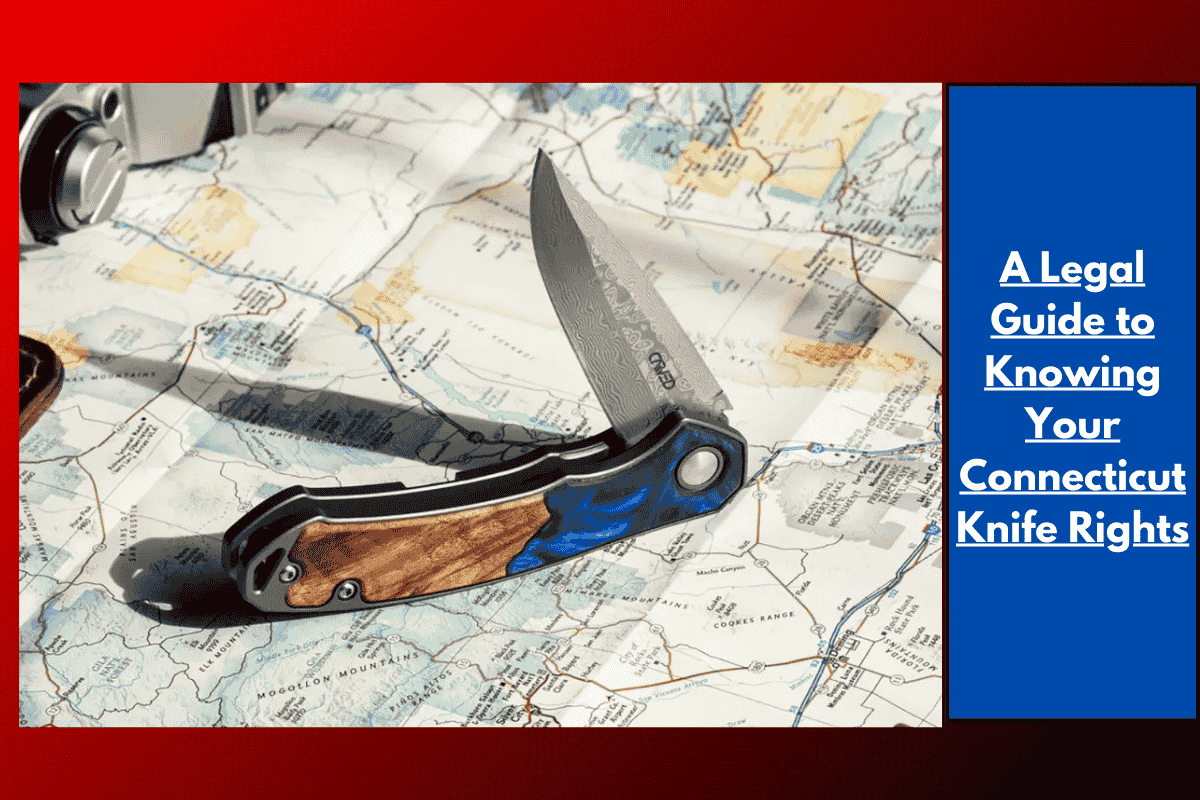In Connecticut, as with most states, the laws surrounding the possession and carrying of knives can be complex. Whether you’re a collector, an outdoors enthusiast, or someone who simply wants to carry a knife for self-defense, it’s important to understand your rights and responsibilities under Connecticut law. In this guide, we’ll walk you through the basics of knife laws in Connecticut, including what kinds of knives are legal, where they can be carried, and what you need to know to stay on the right side of the law.
Understanding Connecticut Knife Laws
In Connecticut, knives are generally treated as “weapons” under state law, meaning there are specific regulations that govern their possession, carrying, and use. The legal definition of a knife varies depending on the type and purpose. However, Connecticut law does provide some guidance on what knives are legal to own and carry.
1. Types of Knives and What’s Legal to Own
Connecticut does not have specific laws banning the possession of knives in general, but there are restrictions on certain types of knives that can be seen as dangerous or used for criminal purposes. Here’s an overview of different knives and their legal status:
Folding Knives: Generally, folding knives are legal to possess and carry in Connecticut. These are knives with blades that fold into the handle. As long as the blade is not automatically deploying (i.e., a switchblade), these knives are usually allowed for civilian use.
Fixed-Blade Knives: Fixed-blade knives, which do not fold and have a blade permanently affixed to the handle, are also generally legal in Connecticut. However, the legality of carrying a fixed-blade knife depends on where and how you carry it. Concealed carry of a large fixed-blade knife could be restricted in certain places.
Switchblades: Connecticut law specifically prohibits the possession of switchblade knives. These are knives that can be opened automatically by a button or switch, and they are considered illegal to carry in most circumstances. However, there are some exceptions for individuals who need them for specific jobs (such as military or first responders).
Daggers and Stiletto Knives: Similar to switchblades, daggers and stiletto knives, which are designed primarily for stabbing, are also restricted under Connecticut law. These knives may be prohibited unless they are intended for specific, legal purposes, such as collection or use in certain professions.
Ballistic Knives: Connecticut also prohibits ballistic knives, which are knives that can launch their blade through a spring-loaded mechanism. These knives are considered dangerous weapons and are illegal to own or carry.
2. Where You Can Legally Carry Knives in Connecticut
While it is legal to own knives in Connecticut, where and how you carry them is subject to regulation. Connecticut law places restrictions on carrying knives in certain public places, and there are specific laws about concealed carrying of knives. Here’s what you need to know:
Concealed Carry: Carrying a knife in a concealed manner (e.g., hidden in your pocket or waistband) may be subject to restrictions. If the knife is considered a dangerous weapon, carrying it concealed could result in legal consequences. Connecticut law generally prohibits the concealed carry of knives unless the person has a permit to do so. However, small folding knives that are not designed for combat or criminal activity are often carried without legal problems.
Open Carry: Open carry of knives is allowed in Connecticut as long as the knife is not considered a prohibited weapon. That said, some areas (such as schools, government buildings, or private property) may have specific rules prohibiting knives, regardless of whether they are openly or concealed carried.
Public Places: In Connecticut, it’s illegal to carry a knife in places where weapons are generally prohibited, including government buildings, schools, or private properties where the owner has posted a “no weapons” sign. It’s important to be aware of local regulations and any specific rules for places where you are traveling.
3. Using a Knife for Self-Defense in Connecticut
The use of a knife for self-defense in Connecticut is legal under certain circumstances, but there are strict rules surrounding the use of force. Connecticut law allows you to use reasonable force to protect yourself, but that force must be proportional to the threat you face. For example, using a knife to defend yourself from an unprovoked attack may be seen as justified in the eyes of the law, but using a knife in an excessive manner could result in charges of assault.
4. Minors and Knives in Connecticut
In Connecticut, minors (under the age of 18) are generally prohibited from carrying knives without parental consent or supervision. It is illegal for minors to possess certain types of knives, such as switchblades or daggers, and restrictions may apply even to folding knives in public spaces. The sale of knives to minors is also regulated, and knives with automatic opening mechanisms are typically not sold to those under 18.
5. What Happens If You Violate Connecticut’s Knife Laws?
If you violate Connecticut’s knife laws, the penalties can vary depending on the nature of the offense:
Possession of a Prohibited Knife: If you are caught possessing a prohibited knife (such as a switchblade or ballistic knife), you could face criminal charges. The penalties could include fines, a criminal record, and even jail time, depending on the circumstances.
Carrying a Knife Without a Permit: If you are caught carrying a knife in a manner that violates the law (e.g., carrying a concealed fixed-blade knife without a permit), you could be charged with a misdemeanor or felony, depending on the situation. Penalties may include fines, probation, or imprisonment.
Using a Knife in a Crime: If a knife is used in the commission of a crime, such as robbery or assault, the penalties will be more severe. A knife used in a crime could result in felony charges, long prison sentences, and substantial fines.
6. Important Considerations
When owning or carrying a knife in Connecticut, it’s important to:
Know the type of knife you own: Understand whether it falls under any restrictions or categories of prohibited knives.
Carry it appropriately: Ensure that you are not carrying a concealed or prohibited knife in areas where it is illegal.
Stay informed: Laws change, so it’s essential to stay updated on any changes to Connecticut’s knife laws.
Knowing your rights regarding knives in Connecticut is essential to avoid legal issues and ensure that you are carrying and using knives within the bounds of the law. While many knives are legal to possess and carry, there are restrictions on certain types, especially those that can be seen as dangerous or designed for criminal activity. Always be aware of where and how you carry your knives, and stay informed about any changes in state or local laws. By following Connecticut’s knife laws, you can enjoy your collection or carry knives for practical use without running into legal trouble.
SOURCES
[1] https://nobliecustomknives.com/us-knife-laws/connecticut-knife-laws/
[2] https://www.akti.org/state-knife-laws/connecticut/
[3] https://ravencresttactical.com/connecticut-knife-laws/
[4] https://portal.ct.gov/BFPE/Laws/Laws/Law-3
[5] https://edc.ninja/connecticut-knife-laws/














